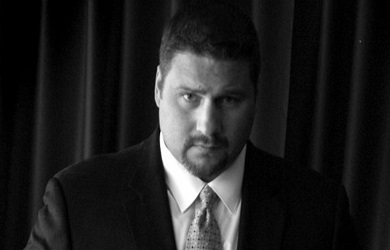It really is remarkable to see Glenn Beck, who is currently coming under attack from the Religious Right for his own Mormon faith, attack President Obama and others as false Christians, saying that those who “pervert the Gospel of Jesus Christ, you are evil. And when you know you intentionally are doing it power, and control, and money, and a hidden agenda and you lie, cheat, and steal every step of the way to do it, you are evil”:
I am getting really tied of this holier-than-thou line of attack from Beck, even as his beliefs as a Mormon have been subject to similar attack, so I am just going to excerpt some passages from the book “Mormon America: The Power and the Promise” by Richard and Joan Ostling explaining the differences between Mormonism and mainstream Christian denominations and why the latter do not consider the former to be part of the Christian family:
In 2001, the Vatican reached the significant decision that LDS converts to Catholicism must be rebaptized, though the church customarily accepts baptisms performed in most other denominations. L’Osservatore Romano, the Vatican daily, explained that the Congregation for the Doctrine of Faith decided that Mormon baptism “is not the baptism that Christ instituted,” partly due to the LDS belief that “God the Father had a wife, the Celestial Mother, with whom he procreated Jesus Christ and the Holy Spirit.”
…
America’s largest Protestant denomination, the Southern Baptist Convention, staunchly opposes LDS theology. The second largest, the United Methodist Church, reject LDS baptism in 2000 on the grounds that Mormonism is self-definition “does not fit within the bounds of the historic apostolic tradition of Christian faith.” A Methodist paper noted that the LDS church add scriptures to the Judeo-Christian Bible and has “some radically differing doctrine on such matters of belief as the nature and being of God, the nature, origin and purpose of Jesus Christ ; and the nature and way of salvation. Other cited problems: God the Father is a procreating deity with “a body of flesh and bones” and is “male gendered and married to a heavenly mother of clear female gender.” Jesus is not eternal with the Father and is “an entirely separate and distinct being” identified with Jehovah, the Father’s oldest child. Mormonism uses the language of the Trinity but with different meanings and is tri-theistic or possibly polytheistic. Also, “God’s and human are the same species of being, but at different states of development,” and the goal of human salvation is “achievement of godhood.”
The Presbyterian Church (U.S.A.) was one of the first major bodies to study officially whether Mormons are Christians. The project began with a national Presbyterian convention in Salt Lake City in 1990, with a follow-up study released in 1995. Presbyterian guidelines state that the LDS church “expresses allegiance to Jesus Christ in terms used within the Christian tradition” but nonetheless is not regarded as “within the historic apostolic tradition of the Christian Church.”
Presbyterians are advised to treat Mormons as adherent of another religion, putting relations under the “interfaith” rubric. Besides the need for rebaptism, Mormons should not receive Presbyterian Communion; and weddings and funerals involving mixed families are handled as “interfaith” rather than intra-Christian rites.
…
In the Mormon understanding of history, the church literally disappeared shortly after Jesus’ apostles died, although apostate human organizations perpetuated the false claim to be Christian. The same process of apostasy was repeated among the believers in the New World who were visited by the Mormon Jesus. There was no church on earth during a hiatus of some 1,400 years until God intervened to restore apostolic governance through the prophet Joseph Smith and his successors.
As Joseph Smith wrote, “we believe the Bible to be the word of God as far as it is translated correctly” … and by “translated correctly, Smith meant the version he wrote that was designed to bring the text more in line with established Mormon doctrine and “restore truths to the Bible text that had become lost or changed since the original words were written.”
As we have noted twice in the last week, the Religious Right doesn’t consider Beck to be a Christian – and neither would most of the major Christian denominations – and yet he continues to accuse President Obama and progressive Christians of being apostates and heretics.
You’d think that Glen Beck would be able to look at his own experience and see how callow and nasty these attacks really are. But you’d be wrong.








